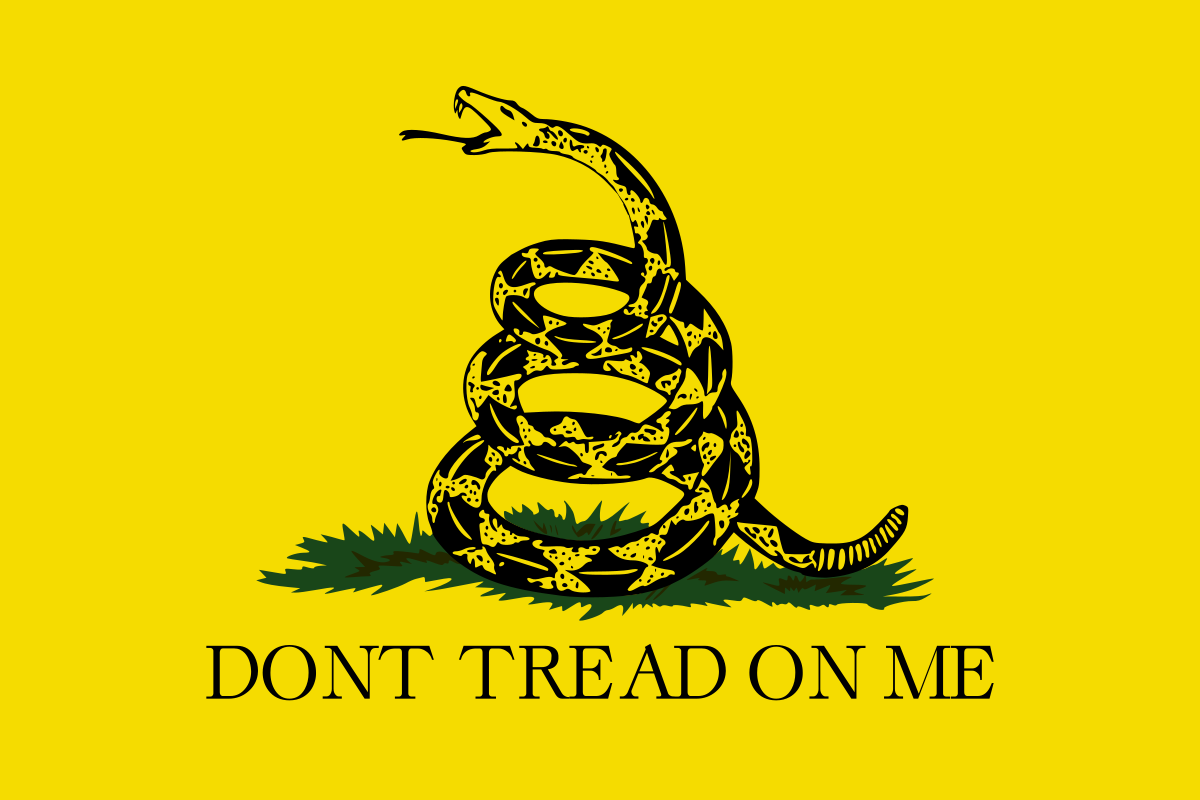
America's superpower.
, .
Noah Smith has threatened to write more about Europe. And so, in the style of our countries’ joint invasion of Iraq, I am responding pre-emptively to a threat that I am exaggerating. By writing about the USA.
I lived in Houston, Texas for two years at “kindergarten” age; my parents worked in the oil industry. And I recently spent two weeks in Chicago, Denver, Santa Fe, and among various small towns in Colorado and New Mexico in between and around those last two cities.
So while I know nothing about the USA, I know about as much as most Americans who write about Europe know about Europe.
Since I live in Leeds, close to where I grew up in East Yorkshire, I’ll write about the USA in comparison to North England. For those who don’t know, North England is the centre of the industrial revolution. It was here that Marx and Engels came to understand what industry might become. And the legacy of that industry is that we are still Western and Central Europe’s third most populous macro city region even though we are no longer its largest economy. Today 11 million people live within 40 miles of Manchester, including me. North England is as large as the Netherlands, with the same population, but an economy that today is only just over half the size.
E pluribus unum
The UK’s mottos are Honi soit qui mal y pense and Dieu et mon droit. They don’t mean anything useful or good even after you’ve translated the Norman French.
The USA’s motto is much better. E pluribus unum means out of many, one. But I reckon unity in diversity is a good stretch translation of the Latin.
It is the USA’s diversity in unity that I think remains a superpower and one of its unique advantages over the UK.
Before you start reaching for data on ethnicities, disabilities, sexualities, women on company boards, variety of accents, languages spoken at home, or anything else, I’m not talking about that kind of diversity. The UK and the USA are not too dissimilar there. Today both countries do well on most of those things, and much better on almost all than they did in the surprisingly recent past.
The diversity I want to talk about is in the law.
Magna Carta.
In 1215 the King of England signed a treaty with his Barons setting out some basic laws for the country. Clause 35 starts “there is to be one measure of wine throughout our kingdom, and one measure of ale, and one measure of corn, namely the quarter of London,…” before continuing to list more weights and measures. And since then England, and later the rest of Britain as it has expanded and shrunk, has been unusually unified and regulated when it comes to weights and measures.
The UK still has just one measure of ale. No 4oz samplers in the UK like you can enjoy in the USA. No 5oz ponies like you can get in Australia. And certainly never a 33cl vaasje (little vase) of draught beer like you can get in the Netherlands.
Just third pints, half pints, and multiples thereof.

These rigid regulations have served Britain well in the past. We could trade internally more easily, earlier, than the French or the Germans. We have largely avoided challenges such as in the USA where two definitions of the foot, a distance widely used in construction and land transactions, remained in use in different states until this year. We're so proud of our uniformity that we pushed to create the European Single Market based on our past successes. Then we left it.
But today our centrally-enforced and now culturally-embedded obsession with uniformity, not just in units, is a weakness. Today our national government,
- Blocks our cities from raising local taxes, even after years of negotiations to agree to them.
- Blocks Greater Manchester from adding their own local labels to educational qualifications to encourage local apprenticeships.
- Blocks Scotland from running a glass recycling scheme.
- Insists that industrial strategy is delivered in collaboration between our smallest level of local government and central government without any mediation from our closest equivalents of states.
This year new UK central government laws will require that all local governments in England, there are over 300, collect waste to the same standards, including collecting food waste weekly. There are precise legal requirements on how the bins used to collect this waste and recycling can and cannot be compartmentalised. Our national government already produces official guidance on allowed queuing systems at household waste sites.
For every example of over-centralisation of government in the UK I give, there are a dozen that are worse. Do not make me explain the national chewing gum clean-up fund.
The push for these imposed uniformities is mostly the goal of preserving the unity of our country. It feels odd while you’re in Britain. It feels mad once you’ve been in the USA for a week.
The USA’s varying sales taxes, car taxes, income taxes, waste collection standards, school systems, privacy laws, planning laws, rental regulations, drinking laws, home ownership association requirements, and professional licensing regulations are boggling to a Brit. That they vary by state, city, county, neighbourhood, and combinations of the four is almost beyond comprehension. But they are better than our alternative.
Because it feels so normal, few Americans appreciate that The USA and its Republic are far too strong to feel the need for the stifling unity through uniformity that the UK uses as a crutch. It is one of your greatest strengths.
Unity through diversity, and competition
Diversity in law, regulation, and governance are a key to the USA’s astonishing success.
- While the UK focuses its air traffic on Heathrow and holds back other airports as part of an industrial strategy to retain London as a truly global airport, Denver, Chicago, Dallas, Atlanta, Los Angeles, and many more are free to build as they please.
- While the UK concentrates its public scientific investments in Oxford, Cambridge, and London to build a golden triangle of excellence that can be world-leading, the USA funds science across its territory, and beyond.
- While the UK government sets detailed housing targets in each local area of England and desperately hopes to push Oxford, Cambridge, and London to expand, the US federal government largely leaves cities and states to decide for themselves and to win and lose in competition with each other. The UK has no Austin, no Denver, no Phoenix, and no Miami. They are actively discouraged. If businesses cannot expand in Cambridge or London, Britain’s elites truly believe that they will leave Britain before even looking up the rent in Manchester or Birmingham. We have no plan to create an alternative to places like Oxford that refuse to grow. Our national elites lack the emotional capacity to imagine such a thing.
- While the UK government hands out free bus passes to senior citizens nationwide, keeps almost all national roads free to drive on, and forbids cities from running their own public transport, the USA lets states and cities largely decide for themselves and have either low taxes and terrible service or high taxes and good service.
Of course these differences come with both costs and benefits.
- Britain’s National Health Services do not exist in the USA, though many states use their freedom to achieve near-universal healthcare anyway.
- Few Americans celebrate the complexity of filing their tax returns, especially not if they are aware how simple it is within the UK’s uniform system.
- The UK has a more functional internal market than the USA. A hairdresser in one part of the country can cut hair in most other parts without requalifying.
But I think the US approach is currently working out better.
Noli me tangere
Many US progressives are less convinced.
- They are jealous of the UK’s government websites, all with the same URLs, similar designs, and mobile-friendly processes. Imagine a single national website to get a driving licence instead of queuing up at the DMV!
- They like the idea of an NHS app, a national bus pass, a national rail system significantly better than Amtrak, and unified national voting registration services.
- They want states to take over planning regulations from cities and counties, seemingly unaware that the UK’s national system for planning in England delivers outcomes even worse than even Democrat-run states in the US.
Even libertarians and conservatives are tempted by the expansion of government uniformity. One of my favourite podcasts is Econtalk. Its host Russ Roberts is a self-declared classical liberal with increasingly soft-conservative leanings. He does not care for federal government overreach. And yet,
- He often leans into the idea of the US Federal Government or its judges banning state-level professional licensing.
- He seems keen to find ways for the US government to force successful cities to build more homes rather than letting those that refuse to build fail and those that build succeed.
I’m sure he mostly overcomes the temptations, but that they can reach even him is proof of their allure.

Driving around rural Colorado, especially in the Republican voting North West, we saw dozens of yellow flags with a snake on and the phrase “Don’t Tread on Me”. The phrase takes inspiration from the biblical noli me tangere. Reading the signs accompanying the flags I learned that Denver, like so many progressive cities in Democratic states in the USA, seems unable to build enough homes. Embarrassingly for people like me, cities in Republican states seem much more able to build. And because of the USA’s decentralisation, they are free to do so. But Denver can't.
Because Denver cannot build enough homes, a large part of Denver’s population wants Colorado's government to take over from the counties that make up the urban area. They want to push through a more centrally planned solution including new freedoms to densify plots of land. And their solution extends beyond their city and across the whole of the state of Colorado.
For people in rural Colorado this must seem absurd. Housing in Denver feels completely different to housing in Rifle, Colorado, 150 miles to the West. So why should the laws be the same? I’m with the Republicans on this one. There is room for diversity within one state when it comes to housing laws. Just as there is so clearly and succesfully room for diversity across the whole USA on most things.
Among Britons I am unusually strong supporter of devolution and decentralisation of government. I think that returning to the distribution of government powers we had a century ago would largely serve Britain well. I will never be as strong an advocate for decentralisation or federalism as Americans are. But I think we would be much better off moving in that direction. And I'd really like to drink a legal 33cl glass of draught beer in a Yorkshire pub one day. I doubt I ever will.